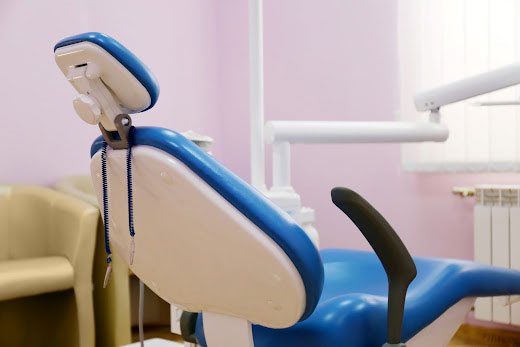 If you have a child with autism, then you may find taking proper care of their teeth and gums a challenge. You are not alone, because a recent study conducted on autistic children ranging in age from 6 to 16 revealed that about 59 percent of these children had poor dental health and a full 97 percent had gingivitis, which is a form of mild gum disease.
If you have a child with autism, then you may find taking proper care of their teeth and gums a challenge. You are not alone, because a recent study conducted on autistic children ranging in age from 6 to 16 revealed that about 59 percent of these children had poor dental health and a full 97 percent had gingivitis, which is a form of mild gum disease.
While keeping your autistic child's teeth and gums as healthy as possible may be a challenge, you can help improve your child's dental health by tailoring their dental hygiene routine to their unique needs.
Read on to learn three tips for encouraging good dental health in your autistic child.
1. Tailor Brushing Teeth to Your Child's Sensory Processing Style
While some autistic children may allow their caregivers to brush their teeth without a hassle, others become combative during this time or even experience meltdowns at the sight of a toothbrush. For these reasons, brushing an autistic child's teeth can often be such a difficult task for a caregiver that they may shorten brushing sessions or even skip them altogether.
However, when you begin tailoring your child's dental routine to their sensory processing style, you may find that your child protests brushing their teeth less and even begins to enjoy the task over time.
While all autistic children are unique, some tend to be sensory seekers while others are sensory avoiders. Sensory seekers underreact to sensory stimulus and seek more of it to compensate for this problem. Sensory avoiders, on the other hand, often avoid sensory input because they find sensory stimulation more overwhelming than a person without autism would.
If your child is a sensory seeker, then try singing or playing a song or watching a video about dental hygiene while performing the task. Also, swap their manual toothbrush for an electric rotating or vibrating brush and offer them an array of fun-flavored toothpastes to choose from that stimulate their senses as they brush.
If your child is a sensory avoider, brush their teeth with a soft manual brush, and swap the flavorful toothpaste for an unflavored one. Also, consider brushing their teeth in an area of the home that has dim lighting and a calm environment instead of in the brightly lit bathroom.
However, if your child is so sensitive to touch that they will not allow you to brush their teeth even when keeping sensory input low during the experience, then consider seeking help from an occupational therapist. An occupational therapist can find additional ways to increase your child's compliance while brushing their teeth, such as desensitizing them to the sensory input the toothbrush provides.
2. Include All Dental Tasks in Your Child's Visual Schedule
Autistic children who struggle with verbal communication often respond positively to visual supports. Visual supports are pictures used to convey information to an autistic child in in a way they can understand more readily than spoken words. Experts believe that use of visual supports can help reduce problem behaviors that stem from an inability to communicate in autistic children.
A popular use for these visual aids is in the creation of a daily schedule for a child. A visual schedule can help reduce the anxiety associated with tasks on the schedule the child dislikes by helping them mentally prepare for the task in advance.
Create a visual schedule for your child that includes photos that represent their dental routine to see if it makes dental care easier for both of you. For example, include a photo of a toothbrush after a picture of your child's dinner and before an image of their pajamas to signal that you would like them to brush their teeth between dinner and bedtime.
3. Visit a Dentist With Special Needs Dentistry Experience
When you have an autistic child, taking your child to the dentist can be even more difficult than performing dental care at home. After all, a dental office is an unfamiliar environment that lacks all of the soothing elements of home that your child is used to. However, you can make dental visits easier for you and your autistic child by visiting a pediatric dentist with extensive special needs dentistry experience.
A special needs dentist can take many steps to decrease the stress and anxiety that autistic people often experience when visiting the dentist for an oral exam or procedure, including:
- Providing a desensitization, or meet-and-greet, appointment to familiarize the patient with the dental office and staff
- Showing the child the tools that they will use to perform dental work before they use them
- Shielding the patient from bright lights that can cause overstimulation
- Suggesting sedation options when necessary to increase patient compliance and comfort
The dentist also knows how to spot the signs of specific dental problems that often affect those with autism so they can be treated or prevented when possible.
If you are the caregiver of a child with autism, then follow these three tips to encourage good dental health in your child. Contact the experienced, caring staff at Dentistry for Children & Adolescents to schedule a special needs dentistry appointment today.
